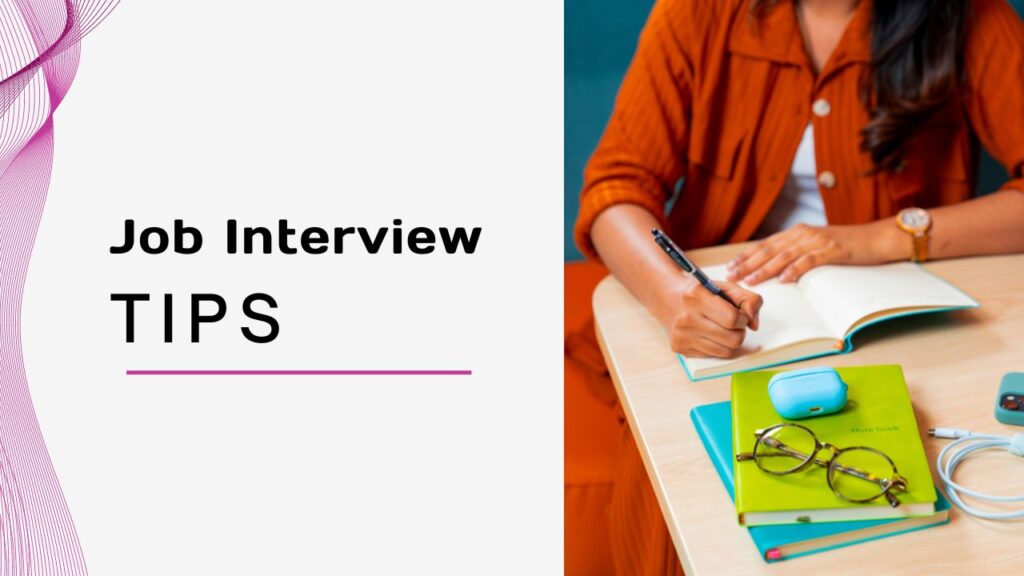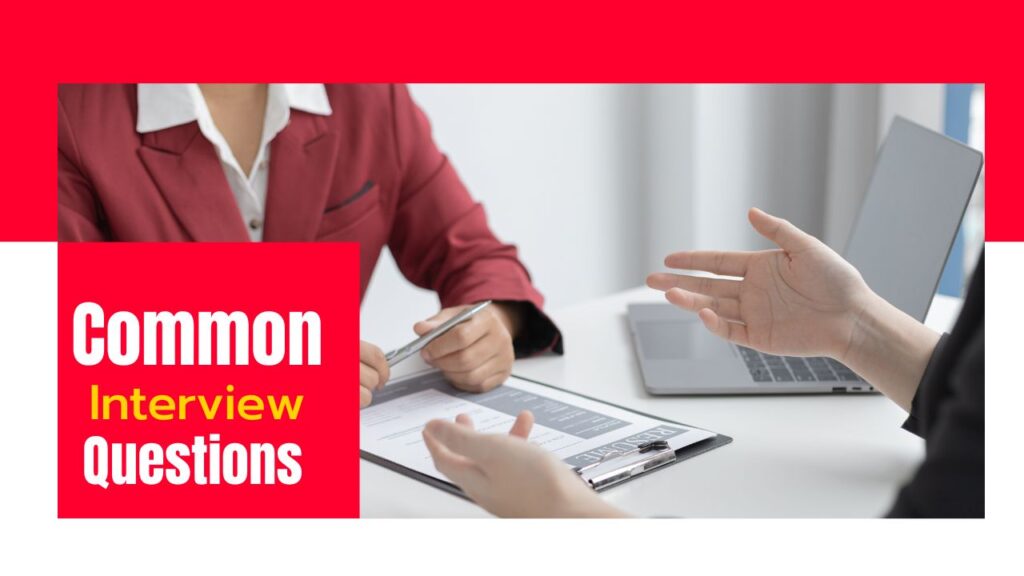Job interviews are a critical step in the job search process. They provide a platform for candidates to showcase their skills, experience, and personality to potential employers. However, interviews can be daunting. To help alleviate some of that stress and improve your chances of success, here are some essential job interview tips.
- Research the Company
Before attending an interview, it is crucial to research the company thoroughly. Understanding the company’s history, mission, values, and culture can give you a competitive edge. It allows you to tailor your responses to align with the company’s ethos and demonstrate that you are genuinely interested in becoming a part of their team. Additionally, knowing about recent developments and industry trends can help you engage in more meaningful conversations with your interviewers.
Prior to heading out to your job interview tip, Interview Expert suggests that you take time to do some research. It is important to know and understand the basics of the company for the job interview tips. Take some time and review the company’s website. Do a quick internet search and see what others are saying about the company. Read reviews from employees and customers alike. This will help you to have a better insight into the company’s culture. When researching on the company’s website, you should focus on understanding what the main service/product is that the company offers as well as the industry that the company does business within. Also, ensure you are reviewing items that are important to you. If you enjoy giving back to your local community, then see if the company performs acts that align with your values. If you enjoy being creative, then research and determine if you would have that freedom within the company. - Understand the Job Description
Review the job description carefully and make sure you understand the key responsibilities and requirements. Identify how your skills, experiences, and accomplishments align with what the employer is looking for. Prepare specific examples that demonstrate your abilities in these areas. This not only shows that you are qualified for the position but also highlights your attention to detail and your proactive approach.
Once you have an understanding of what the company does and its culture, then you need to take time to review the job description of the position that you are interviewing for. A clear understanding of the position will allow you to determine if you have the skills and qualifications. Second, it will enable you to tailor your answers toward the job itself rather than offering generic answers that can align with any position. Third, understanding the job description will provide information that can be used when preparing interview questions. When job hunting, most individuals apply for multiple positions at one time, thus potentially forgetting which job is which. Nothing can be more frustrating for an interviewer when a candidate asks, “Which job is this for”? Do not be that candidate; take the time to review the job description before interviewing. - Practice Common Interview Questions
While it’s impossible to predict every question you’ll be asked, many job interview tips include common questions such as “Tell me about yourself,” “Why do you want to work here?” and “What are your strengths and weaknesses?” Practice your responses to these questions by providing clear, concise, and relevant answers. Use the STAR method (Situation, Task, Action, Result) to structure your responses to behavioral questions, ensuring that you highlight your problem-solving skills and achievements.
When preparing for a job interview, it is very beneficial to prepare answers to some of the more common interview questions that may be asked during an interview. At Interview Expert, we understand that there are varying types of job interview tips. However, some common questions are still asked in just about every interview, and you can prepare answers for those questions. Some example questions are: Tell me about yourself; why should I hire you? Why did you apply for this position? What are your strengths? What are your weaknesses? These are a few more common questions that may be asked during an interview. Having a prepared answer for these questions will help remove the stress when asked, as you already know what you will say. However, it is essential to see what you will say and practice what you will say out loud. - Dress Appropriately
First impressions matter, and your attire plays a significant role in how you are perceived. Dress appropriately for the company’s culture. If you’re unsure about the dress code, it’s better to err on the side of being slightly overdressed than underdressed. A professional appearance can help convey your seriousness about the opportunity and respect for the company.
Dressing the part is another pre-interview item you can control to project confidence. If you are dressed appropriately and feel good about your appearance, you will automatically project confidence to the interviewer. When you feel like you look good, that shows! Ensure that you are dressing appropriately for the position you are interviewing for. Familiarize yourself with the industry standards of the position you are interviewing to align your dress appropriately.
Standing out during a job interview tip is exactly what you want to do because you want to be the person the interviewer remembers to increase your chances of receiving a job offer. However, bright, flashy clothing is not how you want to stand out. You want to avoid distracting the interviewer from what you are saying and your qualifications. If an interviewer is primarily a visual learner, they will focus more on your clothing if it is distracting. You cannot know if the person interviewing you is a visual learner; therefore, it is best to stick with muted or neutral colors and designs. - Be Punctual
Arriving on time for your interview is an essential yet crucial aspect of making a good impression. Plan your journey, considering potential delays. Aim to arrive at least 10-15 minutes early. This shows that you are reliable and gives you a few moments to collect your thoughts and calm any pre-interview nerves. Punctuality is vital for acing your interview. Do not be on time; be early. Let go of items that you have little to no control over. The interview’s location and time are often primarily determined by the interviewee; therefore, do not stress about the things you cannot control. With that said, you also do not need to agree to a date and time if it will not work for you or if you will be under heavy stress to attend. - Body Language and Etiquette
Non-verbal communication is as important as what you say. Maintain good eye contact, offer a firm handshake, and sit straight. Avoid crossing your arms, as it can make you appear closed off. Active listening is also vital; nod and smile where appropriate to show engagement and enthusiasm. Remember to be polite and respectful to everyone you meet, from the receptionist to the interviewers. - Ask Insightful Questions
You will likely be allowed to ask questions at the end of the job interview tip. Prepare thoughtful questions that show your interest in the role and the company. Avoid asking about salary and benefits at this stage unless the interviewer brings it up. Instead, focus on questions about the team, company culture, or growth opportunities. This demonstrates your enthusiasm and commitment to understanding how you can contribute to the company’s success.
Individuals are often on the fence about asking questions of the interviewer or not. Interview Expert wants to remind you that the interview process is not just for the company to determine if they want to hire you but also for you to decide whether you will work there. Asking questions will help you better understand the job itself, the company, and the people you will be working with. During the interview, there are times when the questions you have are answered; however, it is essential to have at least 1 or 2 questions prepared that are not answered. Having prepared questions shows that you have taken the time to prepare for the job interview tip and that you cared enough about the interview to conduct research. Remember, you are looking to stand out nicely throughout the interview. Preparing in advance by having questions about the company will help you to stand out among other candidates who may not have gone the extra step. Go the extra step and prepare questions for the interviewer! - Follow Up
Send a thank-you email after the job interview tip to express your gratitude for the opportunity. Mention something specific discussed during the interview to reinforce your interest in the position. This small gesture can help keep you on your mind and show professionalism.
Follow-up—Following up refers to providing any additional items or paperwork needed as quickly as possible. It can also refer to scheduling the next interview as quickly as possible.
Thank You Letter—One thing that often sets a good candidate apart from a great candidate is following through with a thank you letter/email/text. This communication should include specifics about the interview, job, and items you did not get to discuss or disclose as a positive during the interview.
Conclusion
Job interview tips can be challenging, but thorough preparation can significantly improve your performance and confidence. By researching the company, understanding the job description, practicing common questions, dressing appropriately, being punctual, minding your body language, asking insightful questions, and following up, you can make a positive and lasting impression on your potential employer. Remember, a job interview tip is not just about assessing your suitability for the role but also an opportunity for you to determine if the company is the right fit for you.


